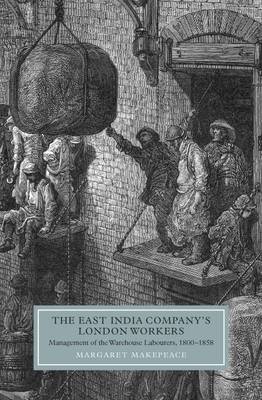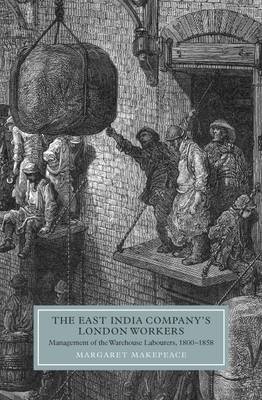
Vous voulez être sûr que vos cadeaux seront sous le sapin de Noël à temps? Nos magasins vous accueillent à bras ouverts. La plupart de nos magasins sont ouverts également les dimanches, vous pouvez vérifier les heures d'ouvertures sur notre site.
- Retrait gratuit dans votre magasin Club
- 7.000.000 titres dans notre catalogue
- Payer en toute sécurité
- Toujours un magasin près de chez vous
Vous voulez être sûr que vos cadeaux seront sous le sapin de Noël à temps? Nos magasins vous accueillent à bras ouverts. La plupart de nos magasins sont ouverts également les dimanches, vous pouvez vérifier les heures d'ouvertures sur notre site.
- Retrait gratuit dans votre magasin Club
- 7.000.0000 titres dans notre catalogue
- Payer en toute sécurité
- Toujours un magasin près de chez vous
The East India Company's London Workers
Management of the Warehouse Labourers, 1800-1858
Margaret Makepeace
177,45 €
+ 354 points
Description
An assessment of how the East India Company managed the labourers in its London warehouses, which was one of the largest commercial workforces in its day. The East India Company, which was by 1800 a commercial organisation of unrivalled size and complexity managing a vast empire in Asia, also played a crucial role in the British economy, particularly in London, where the Company wasthe largest employer of civilian labour in the early nineteenth century, with thousands of workmen in its metropolitan warehouses. This book provides a detailed examination of the management strategies used by the Company to control its London warehouse labourers and to maintain acceptable levels of commercial and corporate efficiency. It shows how benevolence formed an integral part of the Company's domestic business practices, with discipline, punishment, regulation and restriction counterbalanced by incentives, rewards and paternalistic practices, such as fair and regular wages, pensions, a comprehensive welfare scheme, free medical treatment and an in-house savings bank. The book also outlines how, when the Charter Act of 1833 brought about the closure of the vast majority of the Company's London warehouses, the directors instigated a pioneering redundancy compensation scheme for the labourers. MARGARET MAKEPEACE is a Senior Archivist in the India Office Records at the British Library.
Spécifications
Parties prenantes
- Auteur(s) :
- Editeur:
Contenu
- Nombre de pages :
- 254
- Langue:
- Anglais
- Collection :
- Tome:
- n° 5
Caractéristiques
- EAN:
- 9781843835851
- Date de parution :
- 21-10-10
- Format:
- Livre relié
- Format numérique:
- Genaaid
- Dimensions :
- 152 mm x 234 mm
- Poids :
- 703 g







